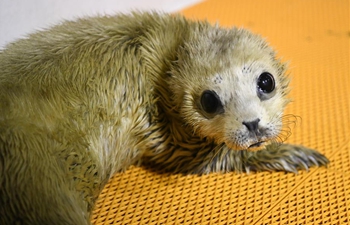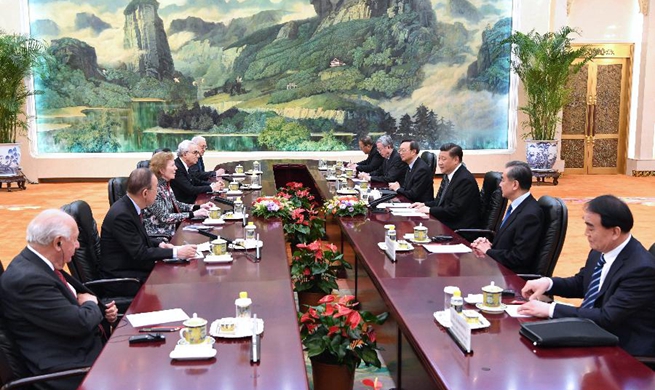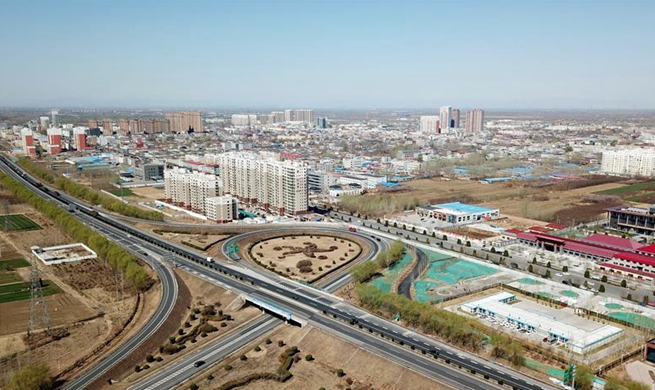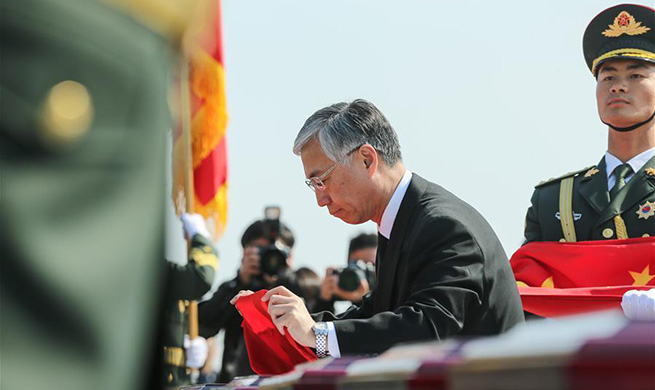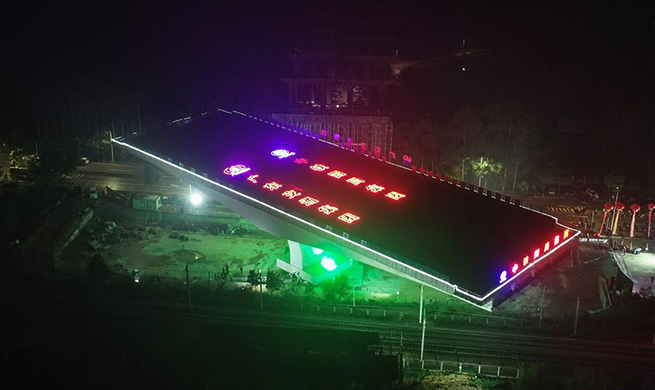URUMQI, April 3 (Xinhua) -- Ranagul Sopi started embroidery in a small village in Xinjiang, but her craftsmanship has taken a magical leap and been featured on catwalks of the Paris Haute Couture Week.
A native of Hami, in the eastern part of Xinjiang Uygur Autonomous Region, she learned traditional embroidery from her mother, a skilled and prestigious embroiderer in the city.
Traditional Hami embroidery has a history of more than 400 years. When a woman gets married in Hami, her mother usually makes her a set of hand-embroidered bedding including pillows and cushions as a dowry, thus keeping the stitching tradition alive.
Embroidery is still an integral part of life for people in Hami. They are found in people's clothing, bedding and other articles of daily use. Popular patterns include brightly-colored flowers and animals.
Sopi became a professional embroiderer at the age of 20. Now 37, she continues to refine her work and seek inspiration from other embroiderers.
"The embroidering skills in other cities such as Suzhou were an eye-opener. I realized there is no end to the craftsmanship. It is a profound form of art," she said.
She spends several months or even years on one piece of embroidery work.
In 2016, Ranagul Sopi started to combine embroidery with high fashion, cooperating with a clothing brand from Shanghai named MOODBOX.
In 2017, an haute couture gown titled Blooming Flowers featuring Sopi's embroidery was presented at the Paris Haute Couture Week.
Now Hami's embroidery industry is flourishing. About 230 companies have been established, thanks to a series of supportive policies provided by the local government.
The embroidery industry has benefited more than 5,600 part-time embroiderers in the city and helped lift them out of poverty.
In 2016, an official traditional handicraft center of Hami was launched, which has developed more than 1,300 products featuring traditional Hami embroidery including earphones and notebooks.
The center received a total of 1,750 orders of embroidery products in 2018, which was worth more than 1 million yuan (about 149,500 U.S. dollars).
Sopi is a respected embroiderer and is often invited to fashion shows in Shanghai and other cities. "I feel like I am a superstar surrounded by bodyguards at these shows," she said.
Although she has won many awards including the title of master of crafts in Xinjiang, Sopi regards the compliment from her mother as the highest honor.
She turned down an opportunity to study fashion design in France to take care of her 75-year-old mother, who is bed-bound.
"Embroidery is the special bond between my mother and me," she said. Whenever she completes a piece, her mother is always the first one to see it.
"My mother is a much better embroiderer than me. It makes me proud when my mother says I did a great job," she said.




